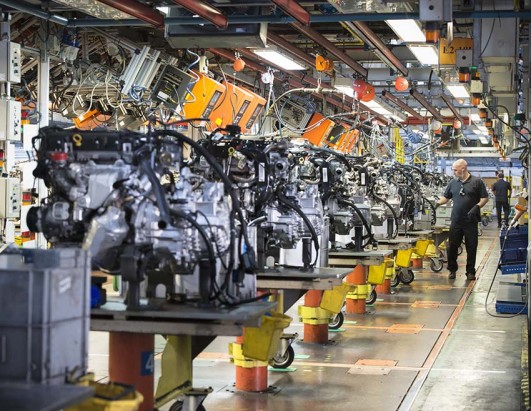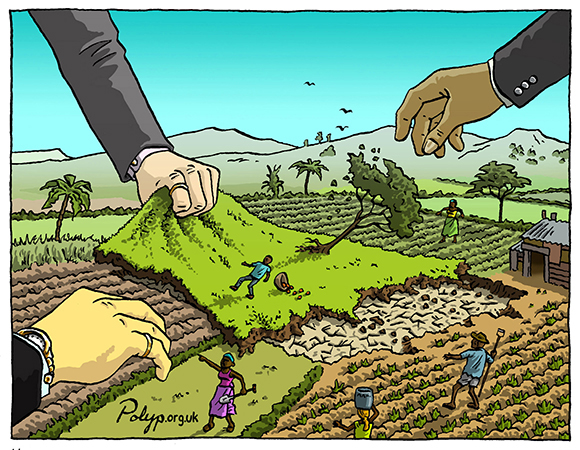4.2 Capitalism, imperialism, and global inequality
Marx (as well as other Marxist scholars after him, notably the Polish economist Rosa Luxemburg) pointed at a significant flaw in how capitalism operates: if workers’ wages are squeezed to a minimum, who is going to consume all these commodities that are being produced for consumption in the production process? (Luxemburg, 1951) Marx referred to this possible problem of capitalists not being able to sell their commodities due to a lack in demand a ‘crisis of overproduction’ (Marx, 1867).
One ‘solution’ that the capitalist class has come up with to overcome their problem of insufficient domestic demand was to look to expand into new markets. Looking ‘abroad’ to other countries and regions, at the same time, also solved their problem of recruiting well-disciplined workers (if there weren’t enough workers available within the country that were willing to work for the wages that were on offer) and of having cheap raw materials to boost their production at minimal cost. During most of the 16-20th centuries, a majority of European nations used physical force to colonise, occupy and control foreign territories and resources. This process is sometimes referred to as imperial expansion. Indeed, the Russian revolutionary and political theorist, Vladimir Lenin, famously described imperialism as the ‘highest stage of capitalism’ (Lenin, 2015).
While colonial powers have retracted physically from most parts of the world (with a few exceptions such as Occupied Palestine, Faulkland Islands, or Western Sahara), countries of the Global North continue to exercise control over countries of the Global South because of the economic power they hold. For instance, the Guyanese historian Walter Rodney highlighted that economic growth in countries of the Global North oftentimes has occurred (and continues to occur) at the expense of countries of the Global South – lower-income countries continue to be economically ‘dependent’ on higher-income countries (which is why this theory is referred to as ‘dependency theory’).
Activity 6: Dependency theory
To learn more about dependency theory, watch this video.
While, today, it is less and less common for countries of the Global North to use military force, multinational corporations regularly enter into complicated contractual arrangements with governments of countries in the Global South, which enable them to access resources and raw materials prevalent in these regions and to penetrate new markets and flood them with their manufactured higher price products. In 2022, researchers estimated that because of unfair international trade rules, the Global North was able to extract US$ 242 trillion (!) from the Global South over the period from 1990 to 2015, if we would put a monetary value on the appropriation of raw materials, land, energy and labour (Hickel et al., 2022).
At the same time, the majority of people living in these countries benefit little from foreign investments, while a selected few have gotten incredibly rich. For instance, the richest man on the African continent in 2024 is Aliko Dangote, a Nigerian (Forbes, 2024). Yet, while Nigeria is home to the richest person in Africa, it is also the country in Africa with the highest absolute number of people living in poverty (83 million; World Bank, 2022).
In fact, global inequality – differences in living standard between people across the world – is stark. In 2022, 1.5 percent of the world’s adult population owned 47.5 percent of the world’s total wealth (UBS, 2023). On the contrary, the poorer 39.5 percent of the world’s population owns only 0.5 percent of total world wealth (see Figure 10). A key factor driving global wealth inequality is that the incomes of those people who are already wealthy and own assets (such as a house or shares in a company) grow faster than those of workers relying on a wage (Piketty, 2014). Imagine, for instance, a person who owns a block of flats in a city such as London, Zurich, Singapore, or Luanda, which are amongst the most expensive cities in the world. The owner of the block of flats can rent out these flats and, if their mortgage is paid off, treat the money they receive from their tenants as extra income. Likely, their income exceeds the income a person earns in a full-time job at a care home, school, or retail shop.

